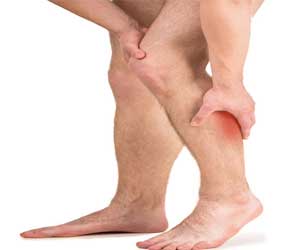- Home
- Editorial
- News
- Practice Guidelines
- Anesthesiology Guidelines
- Cancer Guidelines
- Cardiac Sciences Guidelines
- Critical Care Guidelines
- Dentistry Guidelines
- Dermatology Guidelines
- Diabetes and Endo Guidelines
- Diagnostics Guidelines
- ENT Guidelines
- Featured Practice Guidelines
- Gastroenterology Guidelines
- Geriatrics Guidelines
- Medicine Guidelines
- Nephrology Guidelines
- Neurosciences Guidelines
- Obs and Gynae Guidelines
- Ophthalmology Guidelines
- Orthopaedics Guidelines
- Paediatrics Guidelines
- Psychiatry Guidelines
- Pulmonology Guidelines
- Radiology Guidelines
- Surgery Guidelines
- Urology Guidelines
Drinking >2.5 L of water daily combats claudication, rest pain

Increasing water consumption to more than 2.5 L per day improved symptoms in patients with claudication with or without pain at rest who did not respond to medical therapy, according to research presented at the International Symposium on Endovascular Therapy.
The idea to vastly increase hydration in this patient population occurred after it improved the condition of two patients who had exhausted medical and surgical options, Juan Carlos Parodi, chief of surgery at University of Buenos Aires and Trinidad Hospital, said during a presentation.
“The common factor in both patients was dehydration,” Parodi said. “So, we organized a prospective trial of increased water consumption in patients with claudication and/or rest pain who did not respond to standard treatment.”
The trial enrolled 52 patients (median age, 76 years; 63% men) with no response to medical therapy over 6 months and without a history of congestive HF or renal insufficiency. All patients continued existing medical therapy, underwent a complete physical examination and researchers recorded ankle-brachial index, time and distance to claudication, subjective pain sensation and cutaneous temperature at baseline, 6 weeks and 6 months.
Patients were advised to consume 3 L of water per day. All reported previously consuming only one or two glasses of water per day, Parodi said. The water consumption recommendation was eventually reduced to 2.5 L of water per day in some patients.
Also Read: Exercise improves intermittent claudication leg pain on walking
Key Findings:
- Among 51 patients who complied with the protocol, the researchers reported an increase in skin temperature of the foot (P = .0454), time and distance to claudication (P < .0001), and ankle-brachial index (P < .0001) and a decrease in subjective pain sensation on a scale of 1 to 10 (P < .0001) at 6 weeks.
- At the 6-month follow-up, patients with cognitive deficits and visual impairment showed improvement in those symptoms.
- The researchers also observed a reversal of syncope in one patient, reversal of intestinal ischemia in two patients and improvement in stable cardiac ischemia in two patients.
“Dehydration is common in elderly patients: 1 in 10 admissions to [U.S.] hospitals are because of dehydration, and elderly people drink less fluids because of thirst decrease,” he said. “Most of the elderly patients with intermittent claudication were drinking a low volume of water. All patients responded to an increase in water intake. In the last 12 months, our cases of angioplasty and/or stenting dropped almost 90%.”

Disclaimer: This site is primarily intended for healthcare professionals. Any content/information on this website does not replace the advice of medical and/or health professionals and should not be construed as medical/diagnostic advice/endorsement or prescription. Use of this site is subject to our terms of use, privacy policy, advertisement policy. © 2020 Minerva Medical Treatment Pvt Ltd